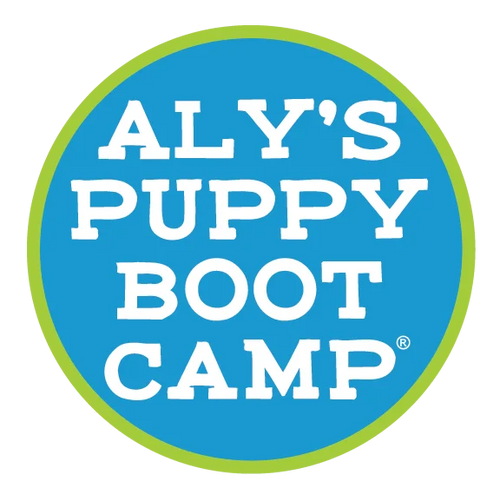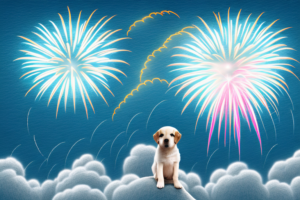Fireworks and Storms: Prepping Your Puppies and Dogs
Fireworks and Storms: Prepping Your Puppies and Dogs
As summer rolls in, so do thunderstorms and fireworks displays. While these events can be thrilling for us, they can be sources of anxiety for our furry friends. Loud noises, bright lights, and sudden changes in atmospheric pressure can trigger stress in dogs. Understanding and preparing for these situations is key to ensuring their well-being. This article explores the science behind their fear, how to recognize signs of anxiety, and ways to prepare your dog for fireworks and storms.
Why Dogs Fear Fireworks and Storms
Many dogs experience fear and anxiety during fireworks and storms due to loud noises, unpredictability, and natural instincts to seek safety. Understanding the reasons behind their fear helps us empathize with our dogs and find effective ways to manage their anxiety.
The Science of Fear
Dogs have heightened sensitivity to noise, especially high-pitched sounds like fireworks. Their acute hearing abilities, much more sensitive than humans, can cause sudden loud noises to startle them and trigger fear. Additionally, dogs are sensitive to changes in atmospheric pressure during storms, which can cause discomfort and anxiety. Signs of restlessness, panting, and seeking shelter often accompany these changes.
Recognizing Fear in Your Dog
Dogs show fear in various ways, such as trembling, hiding, trying to escape, excessive barking, pacing, drooling, and destructive behavior. More subtle signs include yawning, lip licking, and avoiding eye contact. Recognizing these signs allows you to respond and provide comfort early on.
Individual Differences
Fear of fireworks and storms varies in intensity among dogs. Some experience mild anxiety, while others have severe phobias requiring professional intervention. Understanding your dog’s specific needs is crucial for developing an appropriate management plan.
Preparing Your Dog for Fireworks
Preparing your dog for fireworks involves creating a safe space, using distractions and toys, and employing training techniques to desensitize them.
Creating a Safe Space
Designate a quiet, comfortable, and familiar safe space for your dog during fireworks. Set up their favorite bed or blanket with some toys and treats to provide a positive and calming environment. Soundproofing techniques, like closing windows and curtains and playing calming music, can help minimize noise and visual stimuli.
Using Distractions and Toys
Distractions and interactive toys can help divert your dog’s attention from fireworks. Fill a Kong toy with treats or peanut butter, or provide puzzle toys that require mental stimulation. Engaging their mind with these activities reduces anxiety and keeps them occupied.
Desensitization Training
Desensitization and counter-conditioning techniques can help your dog become less fearful of fireworks over time. Gradually expose your dog to low-level firework sounds, increasing the intensity as they become more comfortable. Pair these sounds with positive experiences, like treats or playtime, to create positive associations.
Preparing Your Dog for Storms
Preparing your dog for storms involves recognizing weather changes, comforting them during storms, and using anxiety wraps and other tools.
Recognizing Weather Changes
Pay attention to weather forecasts and be prepared for approaching storms. Dogs often sense changes in atmospheric pressure and other environmental cues before we do. Anticipating your dog’s needs allows you to provide comfort when necessary.
Comforting Your Dog During a Storm
During a storm, provide comfort and reassurance to your dog. Stay calm and act as a source of security. Gentle petting or massage can alleviate their anxiety. Create a calming environment by closing curtains and providing a familiar, cozy space for them to seek shelter.
Using Anxiety Wraps and Tools
Anxiety wraps, like Thundershirts, can help reduce anxiety in dogs during storms. These wraps provide gentle pressure with a calming effect. Additionally, pheromone diffusers or natural calming supplements may help alleviate anxiety. Consult your veterinarian to determine the best approach for your dog.
Professional Help for Severe Cases
In severe cases of fear and anxiety during fireworks and storms, professional help may be necessary. A veterinary behaviorist or certified dog trainer with experience in fear and anxiety can develop a tailored plan for your dog.
When to Seek Professional Help
Seek professional help if your dog’s fear and anxiety significantly impact their quality of life or pose a risk to their well-being. Extreme panic, self-harm, or aggression during fireworks or storms indicate a need for intervention. Professionals can provide guidance, behavior modification techniques, and potentially recommend medication.
Therapies and Treatments
Professional help offers various therapies and treatments, including desensitization training, behavior modification techniques, and medication if necessary. Each dog’s case is unique, and a professional can provide personalized recommendations based on specific needs and circumstances.
Long-Term Strategies and Prevention
While preparing for fireworks and storms is essential, prevention and long-term strategies are equally important for your dog’s well-being.
Training Puppies for Loud Noises
Start early by training puppies to handle loud noises. Gradually expose them to different sounds and reward calm behavior. Building resilience through gradual exposure to stimuli, including fireworks and storms, reduces the likelihood of fear developing.
Maintaining a Calm Home Environment
Establish a calm environment at home to reduce stress and anxiety. Provide a consistent routine, regular exercise, and mental stimulation. A predictable and stable environment helps dogs feel secure and less vulnerable to fear triggers.
Regular Veterinary Check-ups
Regular check-ups with your veterinarian monitor your dog’s overall well-being and address any underlying medical conditions contributing to anxiety. Your veterinarian can provide guidance specific to your dog’s needs, helping you manage their fear of fireworks and storms.
By understanding the science behind their fear, recognizing signs of fear, and implementing these preparation strategies, we can help our dogs feel safer during fireworks and storms. Each dog is unique, and finding the right approach may require patience and experimentation. With proper preparation and care, we can make these events less stressful for our furry friends and strengthen our bond with them.



